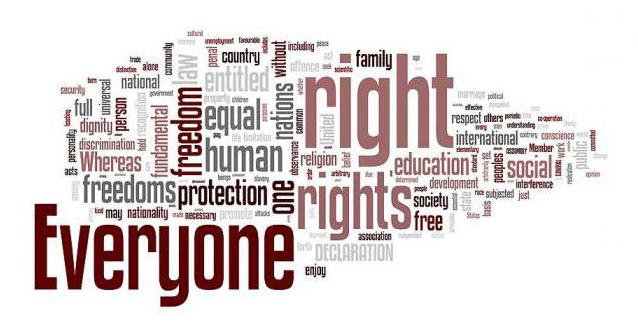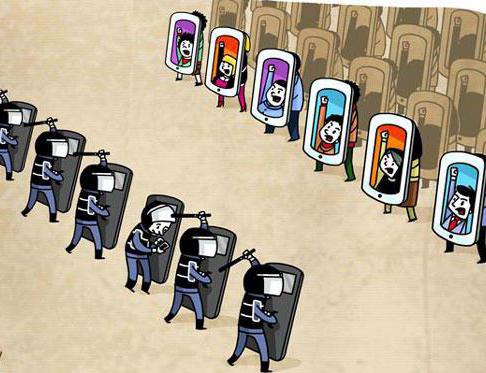The definition of freedom at all times caused a lot of discussion among lawyers, philosophers, historians, thinkers and writers. In view of this, three interpretations are distinguished: ordinary (historical), philosophical and legal. Moreover, it is impossible to consider this concept in one specific context.
The concept of historical freedom
Throughout his entire existence, man seeks liberation from something or anyone. This is due to the fact that people's dependence on circumstances, whether it is the influence of nature or the state, is perceived as a limitation of living space and encourages liberation in any way. Scientists define fundamental freedoms as the main factor in technological and political progress.
In the understanding of historians, freedom is the very process of liberation from the oppression and influence of the past. Even Homer understood it as life on his native land, being not under the control of anyone. Plato, however, saw in the will the pursuit of a better good, not separating himself from society. In his thoughts, he defines the concept of higher freedom - friendship. Aristotle speaks in opposition to this definition, declaring that a person is a figure, distinguished by the scope for choice, in contrast to other creatures.
In the Middle Ages, views on freedom make a new turn, and the will is understood as something granted by God. And such theological motives can be traced throughout most of this period. At the end of the Middle Ages, in the works of Martin Luther , law, law and freedom are put in one row.
The Renaissance era is characterized by anthropocentric turns, that is, freedom is self-orientation, the guarantee of atonement for one's sins and the possibility of approaching God. Towards the end of the New Age in history, the definition of the concept under consideration has spread in the modern sense, namely as the absence of restrictions on the will of a person with the right to choose.
The philosophical concept of freedom
The understanding of freedom by philosophers practically did not differ from the perception of historians. But Democritus argued that laws are a bad invention, the sages should live freely, not obeying the laws. This definition, rather, has a practical load and takes on the features of anarchy, rather than a true definition of freedom. But anarchy is inherently destructive for the state and any society. Spinoza interpreted liberty as disobedience and refusal to live according to the precepts of God's laws due to the fact that piety, humility, people considered a burden. In turn, Hegel later expressed his understanding and determined that freedom is an abstract desire to free oneself from restrictions and dismemberments within the state. But specifically in philosophy, the concept arose during its emergence and institutionalization. This time is characterized by an understanding of freedom from the point of view of the theory of natural law, according to which all people are initially equal and exclusive, later this theory formed the basis of civil law in Roman law.

The most ancient philosophers were clearly aware that whatever freedom was, it could not be limitless. This understanding was reinforced by representatives of classical German philosophy, which then formed the basis of the philosophy of Marxism. The subjective side understands fundamental freedoms as something created by the human mind in response to the same imaginary limitations. From
Kant's philosophy, one can distinguish the objective side, which has limitations, but has already been created by the state in the form of a legislative framework. As a result, philosophical understanding boils down to the fact that freedom is something that is not subject to any restrictions, be it the boundaries of the mind or the word of the law, but without borders there is no thirst for will.
Legal Freedom
As already noted, the concept of “legal freedom” was based on a part of philosophical significance. Although the theory of natural law calls everyone equal, but any state governs the constitution and outlines the boundaries of various criminal codes.
Human rights
The concept of human rights, as well as the interpretation of the definition of freedom, is inextricably linked with the theory of natural law. In the wake of the development of public relations, human rights are enshrined in international and state legal documents. The fundamental factor of democracy is law and freedom. The constitution of the state ensures the consolidation of rights, but if the legislative framework somehow infringes on natural rights, dignity, and freedoms, then a democratic society turns into a totalitarian or authoritarian one.
One of the first documents to systematize and actualize human rights was the Declaration of 1776, which subsequently evolved into the Bill of Rights of the US Constitution. A little later, during the French Revolution, the Declaration of Human Rights was put forward in 1789.
Summing up and combining all fundamental freedoms and rights, the UN Assembly proclaimed the Universal
Declaration of Human Rights. The enshrined human rights at the legislative level for any state acquire the significance of the rights of a citizen.
Citizen rights
The set of provisions enshrined in any regulatory document are the rights and freedoms of a citizen. Their jurisdiction extends to all residents, is guaranteed and protected by the Constitution of a state. The constitution must guarantee the inviolability of the person, the right to freedom of speech and expression and the protection of citizens, even outside the country. These rights are universal because of their widespread use and concern most aspects of human life at the present stage of life.
Differences between human rights and citizen
The rights of a citizen, like human rights, have passed the centuries-old test of time, but there is one significant difference: human rights are what are given from birth, as well as natural rights, while rights of a citizen are vested in accordance with the law reaching a certain age, they can change over time. Human and civil rights are the foundation of any society and modern state. They cannot be undone or radically changed at the whim of one person or in the interests of the ruling elite.
Legal basis of freedom of speech
A person in any field of activity strives for freedom, and in many respects independence of activity is associated with freedom of speech as a form of consolidation of a modern democratic society. Liberalism in statements should not justify violence, slander and enmity, although freedom of speech is an inalienable and fundamental right of a person and citizen.

Many states are trying to regulate freedom of expression in order to prevent racial clashes and religious hatred, which can lead to violence and hatred. The principles guaranteeing this type of independence should be necessarily enshrined in the Constitution, but not lead to the emergence of strict censorship that infringes on the rights of ethnic or social minorities. It may seem that these statements contradict each other, and what kind of freedom of speech can be regulated and controlled. But a democratic state is obliged to maintain equilibrium, to protect and at the same time not to allow statements that entail intimidation, violence and hatred within the state.
Constitutional Law on Freedom of Religion
In the modern world, independence of expression is inseparable from the principle of non-discrimination on the basis of religion, which implies the right to independent choice of religion. You can relate to the denomination and preach with others, either individually, or be an atheist.
This right implies the free change of religious beliefs, the ability to spread and act, based on their beliefs. But the absence of restrictions can harm a democratic state, as recently a large number of religious organizations and sects have emerged that not only preach their ideas, but also harm society, are involved in drug trafficking or extortion.